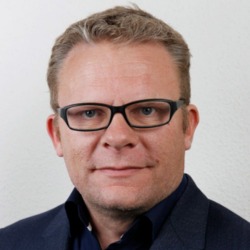
Rutger Engels is the Co-founder and Director of Senz, a treatment center for anxiety and depression in the Netherlands. He is also a Professor of Developmental Psychopathology at Erasmus University Rotterdam, where his research centers on early substance use, depression, and anxiety in youth. Previously, Rutger served as CEO of the Trimbos Institute, which is the Netherlands’ national mental health and addiction institute.

Shiva Thorsell is the Co-founder and Clinical Psychologist at Senz. With over 25 years of experience in specialized mental healthcare, she serves as a senior instructor and supervisor in the postgraduate training of health psychologists. Shiva is skilled in therapeutic approaches, including Sensorimotor Psychotherapy (SP), Ketamine-Assisted Psychotherapy (KAP), body-oriented mentalizing, and Acceptance and Commitment Therapy (ACT).
In the evolving field of psychedelic-assisted psychotherapy, new treatments and models of care are challenging traditional approaches to mental health. How can an intensive, multidisciplinary method provide lasting breakthroughs for people struggling with depression, trauma, and anxiety?
Mental health researcher Rutger Engels and clinical psychologist Shiva Thorsell advocate for a combination of evidence-based methods and innovative practices like ketamine-assisted psychotherapy. They maintain that individualized, modular treatment programs allow them to tailor care for each client. Rutger and Shiva also emphasize intensive approaches, structured group therapy, and lifestyle interventions like running as key tools for deep and lasting change. These research-driven, yet compassionate treatment models can open new pathways to recovery.
In this episode of Living Medicine, Dr. Sandy Newes sits down with Rutger Engels and Shiva Thorsell, Co-founders of Senz, to talk about building a multidisciplinary clinic that integrates psychedelic-assisted psychotherapy. They discuss the importance of individualized modular treatments, how intensive programs foster deeper healing, and how to integrate ketamine-assisted psychotherapy responsibly.
This episode is brought to you by the Living Medicine Institute.
LMI is a training, resource, and membership program educating providers about the legal and safe use of psychedelic-assisted psychotherapy.
To learn more or participate, visit https://livingmedicineinstitute.com.
Leave a Reply
You must be logged in to post a comment.